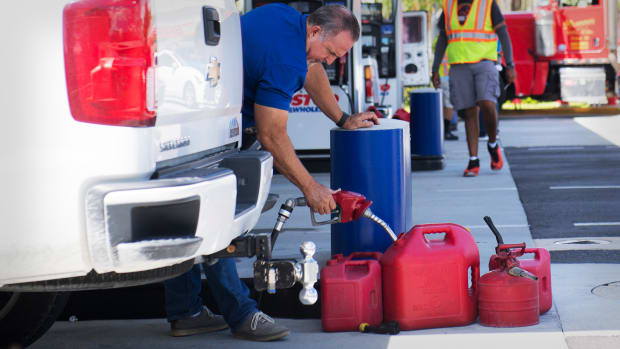Costco (COST) offers a very simple proposition to its members. You pay $60 for basic access or $120 for premium access (which comes with 2% cash back on most purchases up to $1,000 per year) in order to get access to the chain's warehouse "clubs." In exchange for that membership fee, members get very low prices.
Basically, Costco offers no frills -- its stores aren't just called warehouses, they actually are warehouses -- and items are basically just stacked on pallets. There's a limited selection of items, but that's by design too. The chain works with its vendors to get the best prices possible and one way of doing that is limiting choice.
It's cheaper for a partner to make a lot of one size of an item compared to making less of various sizes. Costco also puts relentless pressure on its vendors to squeeze out every penny of cost from each item. The chain places huge orders and that gives it immense buying power, which translates into the warehouse club being able to pass on those savings to its partners.
Costco has also made offering cheap gas a major draw for members. The warehouse club generally has the cheapest price per gallon of any station in most markets most of the time. That's a huge draw and the chain sells a lot of gas, but that creates some unique problems (and sometimes prices higher than as low as Costco could go).

SAUL LOEB/AFP via Getty Images
Costco Sells a Lot of Gas (Which Impacts Price)
Costco CFO Richard Galanti shared some specifics on the warehouse club's gas business during its second quarter earnings call.
"Given that we turn our inventory about every day on average and the average in the U.S. gas stations is like every eight or nine days, so on average, we're buying -- the other guys buying it four days earlier. So when prices are going up each day, when spot prices are going up each day, it's costing us a little more because we bought it today at the highest price versus four days ago. I'm being very simple here," he said.
But, when gas prices fall, Costco can make up some of the money it lost when prices were rising.
"And when it's going down, just the other happens that we make more money when it goes down," the CFO added.
Galanti was quick to point out that using this form of pricing isn't unique to Costco.
"I think part of that story has been thrown away because it seems that not only us, but the supermarket retailers and other discount retailers that operate large numbers of gas stations, they've been able to use it too. As prices went up or went -- even went down a little bit, they didn't go down as fast as perhaps they could have been, which gives us, in our view, an ability to make a little more and still be the most competitive," Galanti added.
Gas Is a Profit Center for Costco
Costco's overall pricing philosophy in this time of inflation and supply chain-driven price increases has been to raise prices as costs go up, but remain a value option in comparison to its competition. That's exactly what the company does with its gas pricing, which despite being low, does drive profits for the company.
"In fact, in our view, it has gotten a little wider. So I think overall gasoline as a retail business has gotten more profitable in the last couple three years. And it's -- that profitability has been even exacerbated a little bit by what's going on with inflation and the headline news that prices are skyrocketing," he said.
Essentially, the warehouse club has been balancing being a value for its members while also making some money. Galanti admitted that gas prices could be a little lower while pointing out that Costco offers a great value.
"And even when you see gas -- while the gas prices have come down at the pump, it seemed like they lagged crude oil coming down, why isn't it coming down faster? And so we still are very much, in our view, the most competitive out there. And arguably, we've been able to use that to be -- continue to be more competitive elsewhere as well."
Gas sales also drive people into Costco's warehouses.
"Historically, a little over 50 of every 100 people that filled up with gas came in to shop. That, actually, right when gas peaked right after the Ukraine-Russia thing. For a couple of weeks there, it went down to like 20%, 25% because people are topping off their tanks for fear that there was going to be a gasoline shortage. If you're as old as me, you'll remember the mid-70s," he added.







